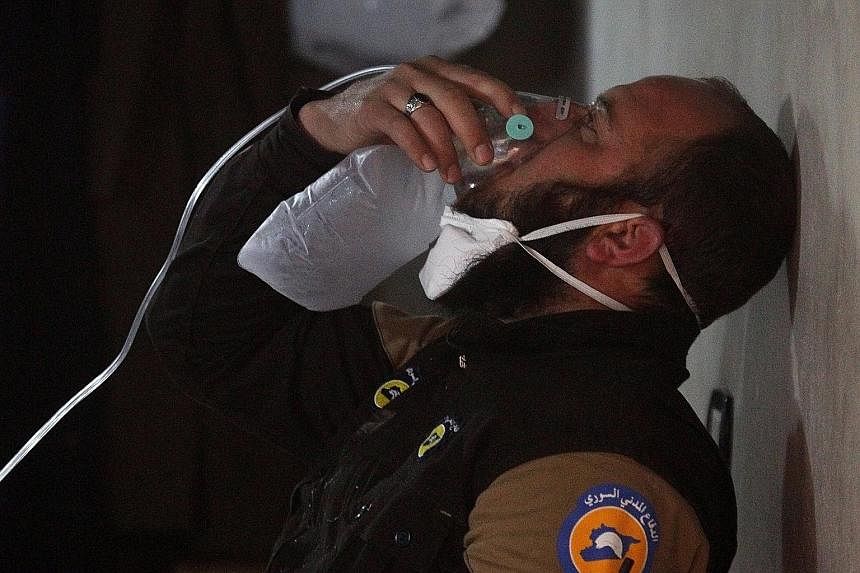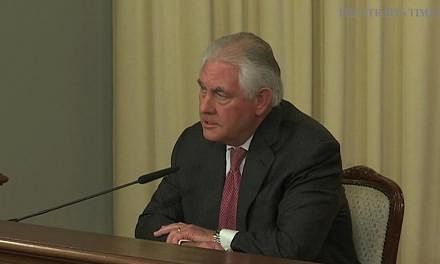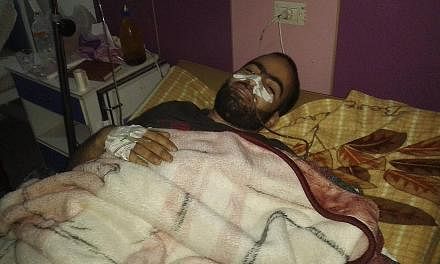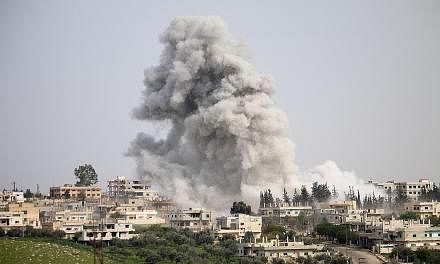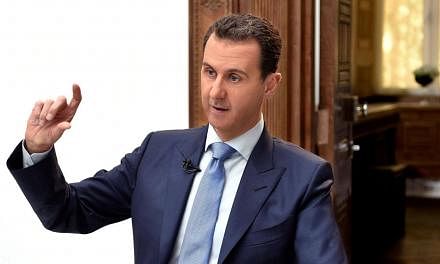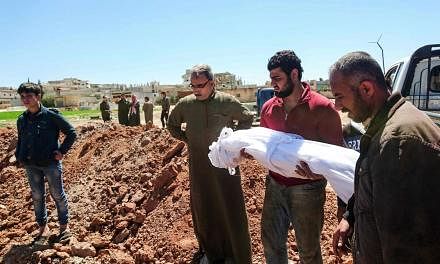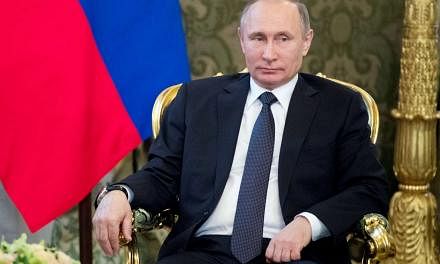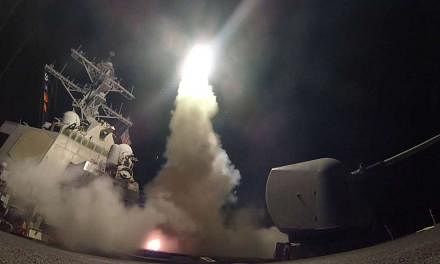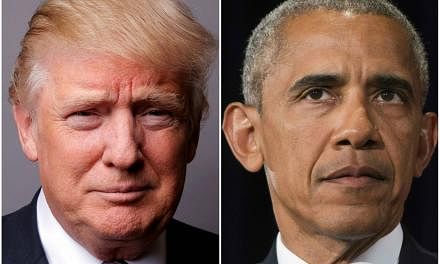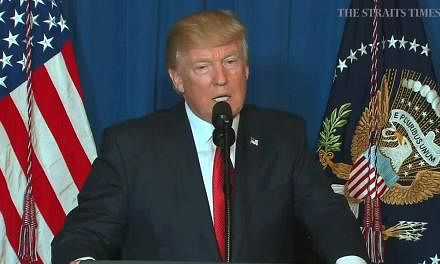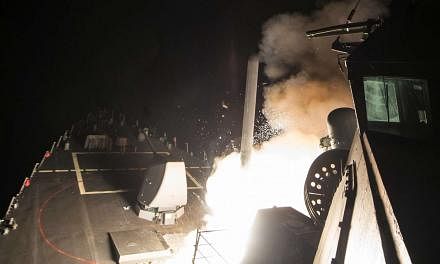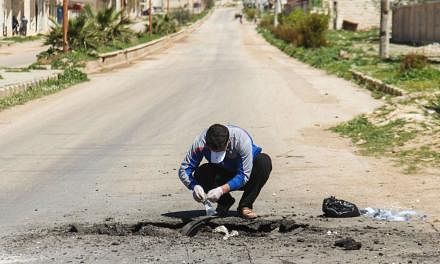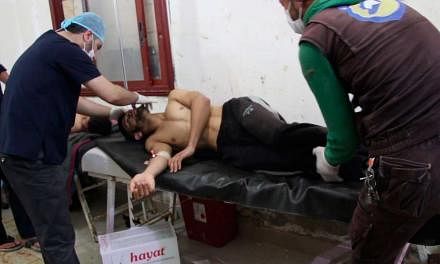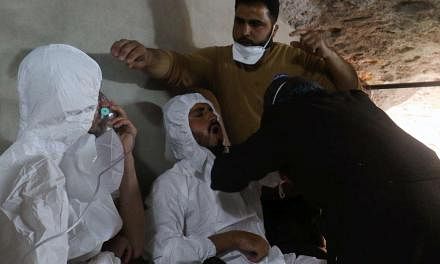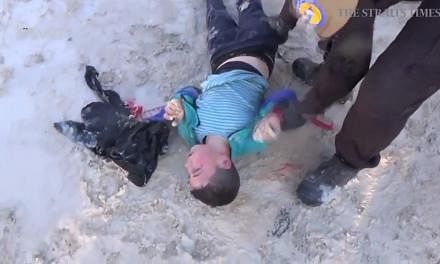PARIS/THE HAGUE • Forces loyal to Syrian President Bashar al-Assad carried out a sarin nerve gas attack on April 4 in northern Syria, according to a declassified French intelligence report.
The report yesterday also said Mr Assad or members of his inner circle ordered the strike.
The chemical weapons attack on the town of Khan Sheikhoun killed scores of people, according to a war monitor, Syrian opposition groups and Western countries.
Mr Assad has said in two media interviews since April 4 that the evidence of a poison gas attack was false and denied his government had ever used chemical weapons.
The six-page document - drawn up by France's military and foreign intelligence services - said it reached its conclusion based on samples they had obtained from the impact strike on the ground and a blood sample from a victim.
Among the elements found in the samples were hexamine, a hallmark of sarin produced by the Syrian government, according to the report. It said the findings matched the results of samples obtained by French intelligence, including an unexploded grenade, from an attack in Saraqib on April 29, 2013, which Western powers have accused the Assad government of carrying out.
The report, which lists some 140 suspected chemical attacks in Syria since 2012, also said intelligence services were aware of a Syrian government Sukhoi-22 warplane that had struck six times at Khan Sheikhoun on April 4.
It added that samples taken from the ground were consistent with an airborne projectile that had munitions loaded with sarin.
"The French intelligence services consider that only Bashar al-Assad and some of his most influential entourage can give the order to use chemical weapons," the report said.
Meanwhile, global leaders yesterday urged all nations to help "banish forever the evil of chemical weapons", as the world's watchdog warned that decades-long progress towards eliminating them was under threat.
UN chief Antonio Guterres led the praise at a solemn ceremony in The Hague to mark the 20th anniversary of the Organisation for the Prohibition of Chemical Weapons (OPCW).
So far, some 95 per cent of the world's declared stockpiles of such arms have been destroyed by the OPCW. And its dangerous, painstaking work to implement the April 1997 Chemical Weapons Convention won it the Nobel Peace Prize in 2013.
But amid reports of sarin, mustard and chlorine gas attacks unleashed during the bitter civil war in Syria, Mr Guterres warned that despite "two decades of success... progress is under threat".
In an unprecedented step in November, the OPCW's executive council condemned Syria's use of toxic weapons - its first public condemnation of any of the 192 members of the convention. The organisation's director-general Ahmet Uzumcu warned that "in Syria, the OPCW has faced its greatest test of commitment as well as resilience".
REUTERS, AGENCE FRANCE-PRESSE
